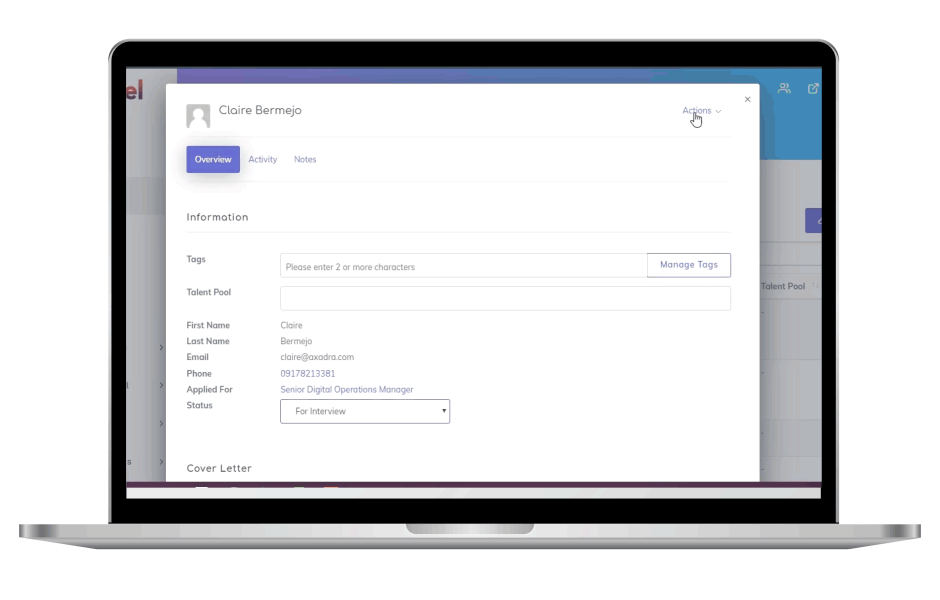For small and medium enterprises (SMEs), finding the right employees for your team can be the catalyst for growth, innovation, and success. However, SME recruitment is not without its challenges, especially for companies with limited resources.
Often, SMEs cannot wait long to find the perfect candidate, nor can they invest a lot of resources on recruitment. Unlike larger corporations that can absorb hiring mistakes or navigate through high turnover, SMEs often operate with tighter margins and limited room for mis-hires.
Let us dive into the most common recruitment challenges SMEs face and how you can overcome them.
Small and Medium Enterprises (SME) Recruitment Challenges
Recruiting the ideal candidates is challenging for all organizations, regardless of their size. However, for small and medium-sized enterprises, that have limited manpower and budgets, finding and hiring the right talent can often feel like an impossible feat. But it’s not! Let’s go through the different hurdles you may be facing as an SME and what you can do to overcome them.
Limited Access to the Job Market
One of the primary challenges SMEs face is limited access to the job market. Larger organizations often have the advantage of a well-established presence and extensive networks, which can draw in a broader pool of candidates.
In contrast, SMEs might struggle to reach the right talent due to limited marketing budgets, networks, and brand visibility. This can lead to a less diverse applicant pool, potentially making it harder to find the right fit for the company.
How to Overcome this Challenge
To tackle this issue, SMEs can enhance their recruitment efforts by leveraging other ways to reach candidates. Here are a few things you can do:
- Leverage social media platforms: Platforms like LinkedIn and Facebook can help SMEs reach a wider pool of potential candidates.
- Use online job boards: SMEs can target their recruitment process by posting on online job boards that cater specifically to their industry.
- Partner with local educational institutions: Building partnerships with universities, colleges, and trade schools can provide access to recent graduates and students seeking internships.
- Employee referrals: Encourage current staff to recommend qualified candidates from their professional networks.
Lack of Name Recognition
SMEs often find themselves competing with larger, more established companies for talent. Lack of name recognition can lead to a smaller applicant pool and increased competition for the best talent.
Many candidates gravitate toward well-known companies, often assuming that the prestige associated with larger firms comes with better job security, benefits, and career advancement opportunities.
Without a resounding name and reputation, it’s difficult to stand out and attract top talent. SMEs must work harder to convince candidates of their value and potential.
How to Overcome This Challenge
Without the platform of name recognition, SMEs should focus on an effective employer branding strategy to showcase their unique culture, values, and benefits. Here are things you can do to boost your reputation to help with recruitment as an SME:
- Highlight company culture: Build the company’s online presence and emphasize the unique aspects of your company culture and values. This helps attract candidates who align with the organization’s mission.
- Showcase employee testimonials: Positive feedback and success stories from current employees can help build trust and credibility, as well as showcase potential for career growth within the organization.
- Leverage employee referrals: Encourage current employees to refer friends and family who may be a good fit for the company.
- Focus on personalized communication: Automate applicant interview scheduling but personalize communication with every candidate during the recruitment process to make them feel more valued and connected.
Limited Budget
While large companies can invest heavily in recruitment marketing and talent acquisition tools, SMEs often operate on tighter budgets that limit their ability to attract the best candidates.
The cost of hiring new employees, which includes advertising job openings, conducting interviews, and onboarding new hires can be a substantial expense for smaller businesses. Budget limitations may force them to find candidates from a smaller pool or they may rush the recruitment process and settle for a less-than-ideal candidate.
However, rushing the hiring process may only lead to poor culture or skill fit, higher turnover rates, and subpar performance, which is arguably more detrimental to the company.
How to Overcome This Challenge
SMEs can optimize their recruitment strategies to fit their limited budget. Here are a few tactics:
- Consider hiring a recruitment firm: A reputable recruitment firm can streamline the hiring process and help SMEs find qualified candidates within their budget.
- Utilize HR software: Investing in candidate tracking software can streamline numerous aspects of the recruitment process, saving time and money.
- Offer competitive compensation and benefits: While SMEs may not be able to match the salaries and benefits offered by larger corporations, they can still attract top talent by offering competitive packages.
- Focus on retention: Invest in strategies to prevent employee turnover – enhance employees’ skills and help facilitate career growth to minimize recruitment costs.
Limited Experience
Many SME recruitment challenges are due to a lack of experience. Small teams may not have a dedicated recruitment specialist, which leaves them ill-equipped to compete against large corporations for top talent.
Without internal expertise to handle all aspects of the recruitment process, SMEs may be hurdled by mistakes, inefficiencies, and poor hiring decisions. They may struggle to identify the best candidates and apply the appropriate strategies for the organization. Should they go for culture fit vs skills-based hiring?
Recruitment is highly nuanced and is best navigated by those with experience. Mistakes in the recruitment process could impact the overall company culture and productivity, not just the success of recruitment.
How to Overcome This Challenge
You can still fill in the experience and skills gap to improve your recruitment practices without having to hire an HR team. Here are some strategies you can apply to overcome a lack of experience as an SME:
Hire a recruitment firm: A recruitment firm can provide the expertise and resources needed to fill the skills gap. They can offer insights into market trends, salary benchmarks, and effective interviewing techniques.
Invest in HR tools: HR tools can help you improve your process and decision-making by objectively filtering the best candidates. These tools can help you minimize errors while allowing you to focus on these high-potential applicants.
Offer training and development opportunities: Investing in employee development and growth can help build internal capacity and improve recruitment outcomes. It also boosts employee retention.
Utilize online resources: Enrich your knowledge of recruitment practices and trends through online resources. Apply these to your recruitment process if you can’t hire an HR team yet.
Turn Recruitment Challenges into Opportunities
Recruiting the right employees is not an insurmountable challenge for SMEs. By understanding and addressing the specific challenges in recruitment SMEs face—such as limited access to the job market, lack of name recognition, budget constraints, and lack of experience—they can develop effective strategies to attract and retain top talent.
Collaborate with Skillfuel to find the best solutions to your recruitment dilemmas and secure the right employees who will contribute to your long-term success. Sign up for a free version of our software or contact us for inquiries!














